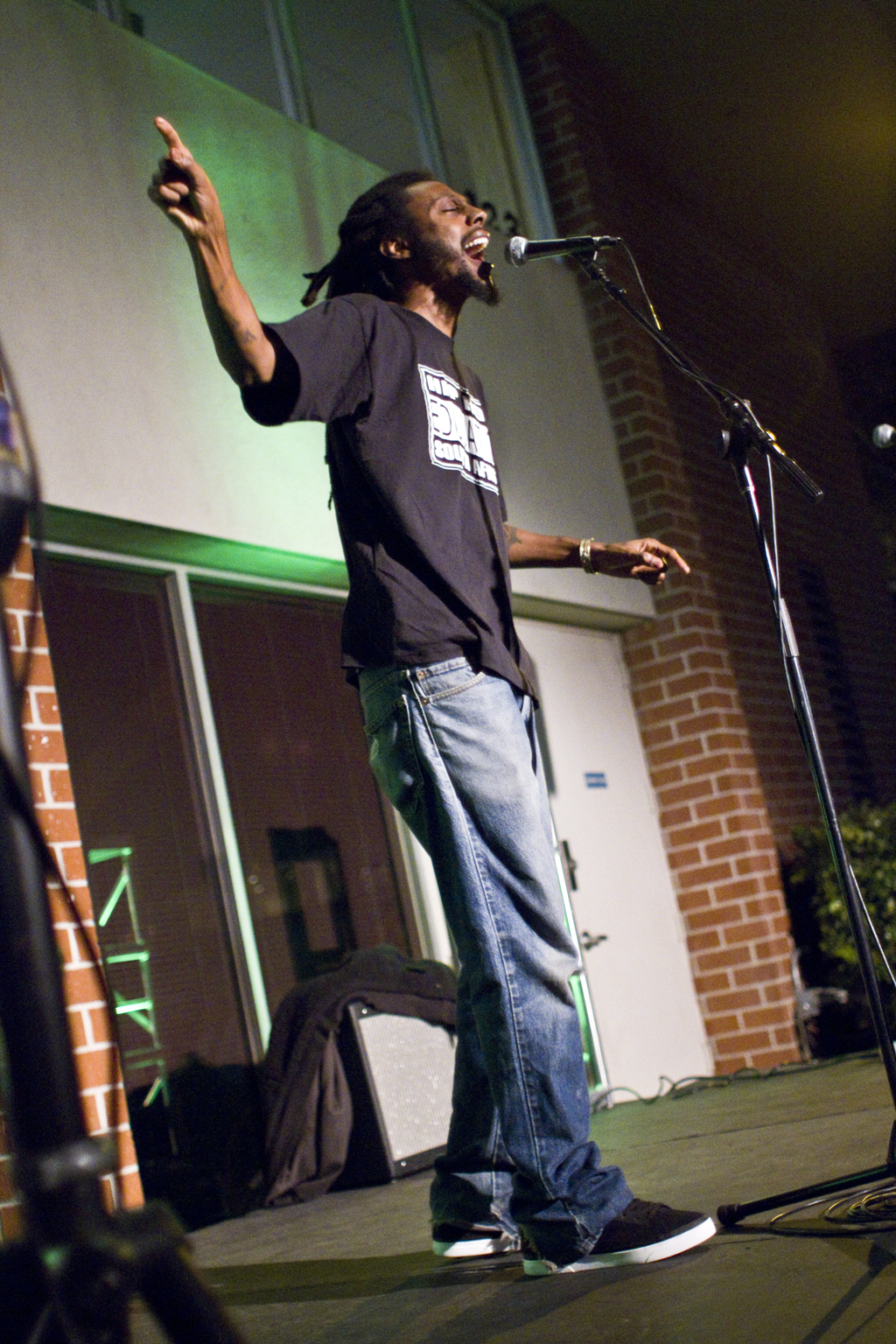It’s difficult not to be cynical of the Poetry Lounge before understanding it – for no other reason than that young poets are often stereotyped as emo-lite expressionists. The notes I scrawled during Biola’s latest Lounge on Oct 8 were telling, so I will repeat them:
The Lounge offered a decent helping of expressive artists, guilt-trips, sermonizing flashes of genuine heart and a fantastic opportunity for Biola’s ethnically diverse student body to knit itself together.
As a cross-culture movement that has been running for nearly 10 years, Biola’s Poetry Lounge includes a culturally diverse lineup of performers. The poetry itself was casual, but adopted the crisp energy of repetitious rhyme that makes hip-hop so appealing.
The frequent use of rap during the night’s performances emphasized the black and Hispanic presence in the audience, which Biola consistently strives to honor in a manner that isn’t awkward or politically driven. It seems that the spoken word is a good place to start.
Some Poetry Lounge performers shined
The highlight of the evening was the performer Propaganda, easily the most literate entertainer in the lineup. Propaganda’s best rap was an unabashed love song to Western Christendom, including payments of homage to St. Polycarp, St. Augustine, Martin Luther, John Edwards and Billy Graham. Propaganda’s crisp energy — he speaks well with his hands — and sheer entertainment value were admirable and engaging.
Other artists of note included Bobby, hailing from APU, a bluesy guitarist who chanted a touching ode to his father, and a wonderfully sensual love song to his lady, Wisdom. Curtis Jones, another fair artist, opened the night with references to Socrates and Les Miserables’ Inspector Javert in a rap regarding “religious police.” His comparison of Christ to “yellow egg yolk” that must be consumed was a beautiful visual parallel.
Other poets highlighted darkness, but not the light
Unfortunately, few of the young poets in the block preceding intermission aspired to Propaganda’s scholarship, Curtis’ philosophy or Bobby’s heart.
It should come as no surprise that most of the poems read at the Lounge were dark-toned and frustrated. These were, after all, college students. Sadness is not difficult to portray and should be addressed. Yet the tendency of the college performers’ works to relive old sins gravitated towards gratuity, or at least towards dangerous ambiguity.
The third poem of the night, entitled “Partiality,” struggled with the American legacy of white supremacy. While recognizing America’s sins is noble, the poem could have been easily misread as an affront to Caucasian culture itself, since it did not edify any race but sought to convict white culture of its misdoings. The artist’s ideal world where “faces have no color” was an interesting concept, but again, did not edify.
Vagueness with words is understandable, but when addressing sensitive sins such as racism or fornication — another of the night’s subjects — one should avoid ambiguity at all costs, to avoid the impression that one has poor taste.
Taking a lesson from the evening
What made Curtis Jones, Propaganda and Bobby excellent small-time artists is that they not only spoke well of Jesus, but they also spoke tastefully about sin. As Propaganda so aptly put it, using words well, “now that’s a biblical work ethic!”
Yet if nothing else, the Lounge’s mission, to raise awareness of on-campus ethnic minorities, is to be commended. In a season where a white Jesus mural raises sensitive eyebrows, it is good that the Biola community has found a way to channel its love of the American melting pot into a specific artistic activity such as the Poetry Lounge.
In terms of Propaganda’s “biblical work ethic,” the Poetry Lounge struggled with portraying harsh themes with vague language. However, when it came to recognizing and edifying Biola’s minority cultures, the Lounge was a valuable experience.







